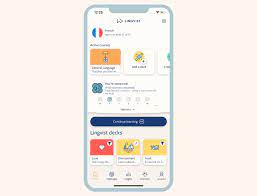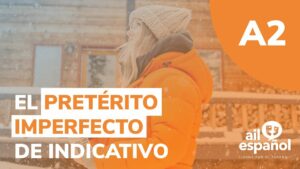Babbel vs Duolingo: Here's the Duel
“I’m challenging myself to learn 10 languages”, I told my mom when I was 10. Needless to say, I had no idea how to accomplish that. Neither did I have the slightest idea about any online language learning platform or online language courses (did they even exist when I was so young?). Were that now, with the abundance of apps, I might have dared to say “20 languages” [I’m on my foreign language #7]. Anyway, for the past two (Spanish and Polish) and the two I’m going to embark on (Dutch and French), I’ve been trying all kinds of online learning apps. Not that I’m picky – I’m honestly the biggest conservative you've ever met – but I crave applicability and structure.
When you have a certain experience with linguistics (nerd alert: two MAs and 12 years of teaching), you start analyzing all language courses from the points of view of both a professor and a student. So, I’ve spent this week comparing Babbel and Duolingo, both enjoying immense popularity, to claim the ultimate winner. Disclaimer: That’s Babbel if you’re nerdy like Monica Geller, and Duolingo if you’re carefree like Joey Tribbiani from "Friends".
Keep reading if you want my unbiased feedback on the key strengths and weaknesses of both Babbel and Duolingo. I’ll walk you through the major points and provide you with an informed pick as a language learner.
Babbel vs Duolingo: Nice to Meet You Both
Babbel and Duolingo are very similar in how they structure lessons. You're offered a free placement test, are introduced to basic phrases, and are given about a dozen drills to make your brain process the learning material. That said, both apps have their strengths and weaknesses. And I’d like to get them straight right here (even this would probably be enough for you to make the right choice).
Babbel

Babbel is a German app created back in 2008 (as the very first language learning app, ever). Today, it offers 14 language options. Babbel's lessons last 10 to 15 minutes; they're engaging and fast-paced. Babbel makes sure you don’t get bored easily, and that your learning process is entertaining and well-rounded.
Let’s start with the major pros of Babbel:
- A large selection of subscription plans (4!)
- A systematic, academic-like approach and comprehensive lessons
- An emphasis on cultural immersion and conversational practice
- An option to sync your profile across devices
Does it also have cons? Unfortunately, yes:
- No free learning plan
- No option to download lessons
- A rather glitchy mobile version
Duolingo

Duolingo was launched a year later than Babbel, in the U.S. It has grown into the largest language learning app and may now boast as many as 38 languages. Duolingo is even more fast paced than Babbel, with adaptive learning lessons of only 5-10 minutes. While Duolingo courses are just as likable as Babbel's, I personally only enjoy Duolingo's paid ad-free experience (ads are an inseparable part of the free plan).
Do you want a few immediate pros of Duolingo?
- A completely free plan and no extra charges for different languages
- A game-like, intuitive interface
- Access to solid extra materials
- Downloadable lessons/offline access
What about its obvious cons?
- Bugs in the speech recognition tool
- Annoying ads in the free version
- Too many notifications to your email
While these language learning apps have their clear strengths and weaknesses, even a superficial acquaintance with either gives me an obvious winner. Ta-da – that's Babbel. Read further to see whether Babbel is your winner too.
FAQ: Is Babbel harder than Duolingo?
Language experts claim Babbel is a bit harder than Duolingo. If you're a complete beginner, you might want to start with Duolingo. Duolingo offers a more basic vocabulary and does not focus on grammar lessons. In turn, Babbel immediately invites you to do writing exercises and study grammar rules as well as encourages you to practice speaking. If you're past the absolute novice stage, both apps would seem equally hard/easy for you.
Babbel vs Duolingo: The Duel
Pricing – Babbel and Duolingo Are Industry Winners
I’m starting with pricing as it often serves as the key motivator to take or toss a learning app in the very beginning. Babbel's plans are more diverse: you have as many as four options (one-month, three-month, six-month, and 12-month) versus Duolingo’s two (free and plus). At the end of the day though, the cost per month boils down to approximately $7 for each (disregarding the free version). If you go for a paid plan as such, here’s my ultimate advice. Don’t base your choice of Babbel vs Duolingo on the price tag – the difference is negligible.
Regarding the free plan, there’s no other app on the market that would be as generous as Duolingo. What’s the downside? Well, you'll be annoyed by tons of ads (how else would the free version finance itself?), few review and testing options, and almost no access to free materials. Bottom line: if you approach your learning process seriously, invest the $7/month. You won’t regret it. After all, both apps offer a money-back guarantee: 20 days from Babbel and 14 days from Duolingo.
Lesson Structure – Babbel WIns a Narrow Victory
In short, Babbel is an OCD person's dream. Its lessons are very structured and flow into each other in an orderly fashion. The program adapts to the user – you'll receive more conversational phrases that you haven’t memorized in future lessons. The topics are interlinked and grouped logically.
Duolingo’s bet is on the gamification rather than order. It hooks you with interactive features and an entertaining teaching style. From my brief experience (albeit based on four languages), Babbel’s topics and their progression are more applicable to daily life. If you learn about shopping, you’ll feel confident in a store in a foreign country, holding a basic conversation with a cashier or shop assistant. Duolingo doesn’t go into length to prepare you for real-life scenarios that much. I mean, Duolingo offers you tons of conversational phrases too, but without drilling your speaking skills.
If you approach apps with a Fresnel lens like me, you’ll immediately see Duolingo is kind of a cheater. I'm not questioning whether it dabbles in relationships with other users (online courses are always polygamous, aren't they?), but that it tends to give you an illusionary sense of language proficiency. You study endless lists of phrases in a new language and see your name on top of a leaderboard (the tool’s great for viers), you might feel puzzled in real-life situations. Do you like cramming names of fruit you never buy or practicing overly simplistic sentences like "My bicycle is big"? If so – Duolingo courses might work just fine for you. If you need to be focused, though – learn languages with Babbel.
Vocabulary and Speaking – Babbel Gets a Trophy
Duolingo strongly focuses on vocabulary lessons. It will make you repeat the same phrases lots of times and drill you till you’re sweaty. At the same time, you mostly engage in mechanical repetition. Is that really what we are looking for? Here, the app goes for quantity rather than quality – at least from how I’ve experienced it.
As for Babbel, it attempts more context. You get to practice the real implications of phrases, and the selection of vocabulary is truly impressive. You’ll learn a bit fewer words overall, but you’ll be as prepared as the Queen’s Guards to use them when the time is ripe.
Now, consider me a snob, but I wouldn’t go for either Babbel or Duolingo to boost my vocabulary. I think the industry is still on the lookout for a perfect app that would fill this gap, and I hope our future Flying Languages app will have this covered with flying colors.
If we're talking about improving speaking proficiency, kudos to Babbel. At first sight, the two apps are very similar: Duolingo has the feature of Events, and Babbel offers Live Classes. The former allows you to connect with other language learners and get to know each other by discussing interesting topics. The latter does the same but more solidly and academically: Babbel’s schedule is planned well ahead, and you can easily pick the slot that pleases you. Disclaimer: Events are free of charge (in the paid plan), while Babbel Live Subscription will cost you extra (at least $50 a month). Whether it's worth it, that's up to you. If you ask me, I’d rather take a few private language lessons with native speakers.
Live Classes and Events aside, neither app gives you enough speaking exercises. While they create an illusion of engaging you in conversations, your brain is seldom challenged to build new sentences but to simply mechanically repeat the memorized ones.


Grammar and Writing – Babbel Wins by a Landslide
Unfortunately for Duolingo, it doesn’t suit grammar nerds like me. The app hardly cares about your grammar skills. However, Babbel recognizes a special place assigned to grammar in language acquisition, albeit it doesn't hit you over the head with heavy grammar rules. I love this teaching and learning style, which I gently dubbed "soft grammaticalization". Babbel offers several sentences explaining how a rule works and then it offers a few flashy exercises to test your understanding. Not that painful, I promise. A tip from me: copy these short explanations and save them in a separate file. They’re on point, and you might want to revisit them later along your language course.
Babbel tends to ask you to type a new word (rather than just select it) in some exercises. While it might seem minor, you do remember vocabulary better when you engage with it actively instead of just clicking on it. It's one of the golden rules of language learning – write a word five times to remember its spelling. The rule says nothing about clicking on it five times though.


Speech Recognition – High Five to Babbel
Something both apps can boast about is their speech recognition software. It asks you to repeat a word and will either approve or disapprove of your pronunciation. Sadly, Duolingo's is quite buggy. I’ve had my near-perfect Spanish espantapájaros (scarecrow) rejected, albeit confirmed as fine by a native speaker offline. I also butchered French words that were applauded by the app. Honestly, you should've heard me! There’s no way they were even 10% correct. No way. If there's a condition where a person has a really hard time with a specific language, that’s me in French. This is how bad it is.
Babbel’s text-to-speech software works more smoothly. I’m even ready to bet Babbel is the industry winner in this category. I tested it with all four languages and experienced no glitches.


Overall Experience – A Tight Game
If I must provide a short comparison, Duolingo holds slightly more chances to retain your interest with its interface and perks. It also appeals more to younger learners. You earn lingots (Duolingo "money") to pay for extra features and follow a special goal tracker on the dashboard. You'll feel immersed in a virtual world. Just what one needs after an exhausting office day – to act like a happy child for 15 minutes. Babbel doesn’t seem to consider entertainment its priority: it boasts a more robust but less game-like approach. It's an appropriate language course for someone looking for comprehensive lessons without distractions.
What's great about both Babbel and Duolingo is that they make you revise and review the content all the time. What's special about Babbel, though, is that it offers loads of options – such as reviews that can include listening, speaking, flashcards, or writing. What makes all the difference is that it's tailored to your learning style. Duolingo doesn't make that possible, but it still ensures you remember new words – your module icon changes color according to how well you have mastered the vocabulary.
I’d say you won’t be able to claim a winner in this category unless you dig deeper. You’d just keep both language learning apps, pay for both, and learn with both. Well, that’s also an option.
Note: Speaking of flashcards, if you want to know the best five flashcards apps for language learning, then you'll find the answer here, "The Five Best Flashcards Apps for Language Learning - Are They Good Enough?"
FAQ: Can you become fluent with Duolingo?
In short, no. Duolingo is a solid app to complement your language learning journey. Language apps act as extra tools rather than the end in itself. To aspire to fluency, you still need to communicate with native speakers, read books, listen to the news, and watch YouTube and movies in the target language.
Babbel vs Duolingo: Let’s Go Exclusive
You might get an (erroneous) impression that Babbel, Duolingo, Rosetta Stone, Busuu, and other apps are all the same, that their developers just copy-pasted stuff and changed colors to make the interfaces look different. That's not true. Each language app has one or more unique features. Listed below are two exclusive elements for Babbel vs Duolingo. Which of them has more value for you? For me, my vote goes to Duolingo.
- Duolingo is the king of free resources. First of all, it has a free version. Second of all, its paid version offers so many extras you would sometimes wish they weren’t there. Just kidding. They're appealing, and you want to try them out, so you spend much more time than the 15 minutes the actual lesson lasts. Duolingo’s Short Stories sharpen your reading and listening skills while also giving you insight into the social aspect of the language. In addition, Duolingo Podcasts are great, but you can only enjoy them if you learn Spanish, French, or English. If you’re learning one of these, add a few points for Duolingo over Babbel. Duolingo also allows you to connect with other learners on special forums, get learning tips, or have fun while practicing a new language. Last but not least, it enables you to learn multiple languages without paying for each of them. Take me, for instance - I'm currently doing four language courses while I only pay for one.
- Duolingo satisfies your competitive edge with the leaderboard. While it might be of no use to some people, there are some (myself included) who are fueled by the energy of competition. I become more disciplined and organized if I know my name will appear on a list with other language learning enthusiasts. I hate being on its bottom or even in the middle. So, I'm inspired to spend extra time and practice, win lingots, and move up.

And here are Babbel's:
- Babbel offers English translation for problematic instructions. While this feature might seem off-putting to some at first (apps like Rosetta Stone and Duolingo support complete immersion), I'm positive that direct sentence translations are helpful at the beginning of a language journey. If a user has to pause a lesson to look up a word every time it comes up, or makes mistakes in a drill exercise just because the instructions weren’t clear per se, they will eventually get annoyed and quit their new language. We're used to receiving answers immediately. We want our time appreciated and translation embedded, no matter how right or wrong it is from the point of view of teaching and learning a new language.
- Babbel gives you a sense of empowerment. Right after you've paid for your course, all the features unlock and you may enjoy the freedom to skip certain modules and search for specific topics. As I’m learning my target languages offline as well, I want to follow up on the topic I’ve already started. It grants more value to my learning experience. Congratulations Babbel!

FAQ: How long does it take to complete Babbel?
If you take one 15-minute-long lesson a day, a complete course will take you half a year. You could hardly hope to master a second language using this app alone, though. One can't start speaking fluently relying on Babbel exclusively.
So, What’s My Final Say?
I’m a picky learner, and I’ll be honest with you: neither Babbel nor Duolingo cover me completely. Apart from the already listed weaknesses, they aren't tailored for advanced learners. I’d characterize each of them as beginner-to-intermediate language courses. At the same time, I understand they might serve me well as additional tools, so I’m installing Babbel to accompany me and boost my in-class courses. My final verdict on the face-to-face battle is below.
Use Babbel if:
- You want to focus on conversations and target culture
- Your aim is to have a well-rounded, academic approach to language learning
- You realize the importance of grammar courses and are willing to learn rules
- You appreciate freedom and the ability to skip lessons or stray away from the pre-decided sequence
- You're ready to pay separately for each new language
- You want an in-depth language experience rather than a superficial acquaintance
- You don’t mind paying extra for additional resources
Get your Babbel here if this list convinced you.
Opt for Duolingo if:
- You seek an adaptive and personalized approach
- You prefer game-like lessons that don’t have a flair of an academic course
- You like receiving incentives and praise for your progress
- You're fine with a strict lesson sequence and feel no need to skip topics
- You don’t mind leaving grammar aside and focusing on vocabulary
- You want to study multiple languages simultaneously
- You need to download materials for further reference
Get your Duolingo subscription here.
Thank God and genius creators of language learning apps, we’re past the time when we had to exchange CDs to grab a sneak peek into native language conversations [yes, I’m one of those dinosaurs who know how CDs, and even cassettes, work]. Whether you pick Babbel or Duolingo, you’ll see your language skills improve. They’re both worthy apps to complement your language learning journey, albeit not exclusive to the point they can replace in-person classes. I guess you can live with the imperfections these two apps offer. If not – wait till we launch our Flying Languages app. It’ll be as close to perfection as it gets.



